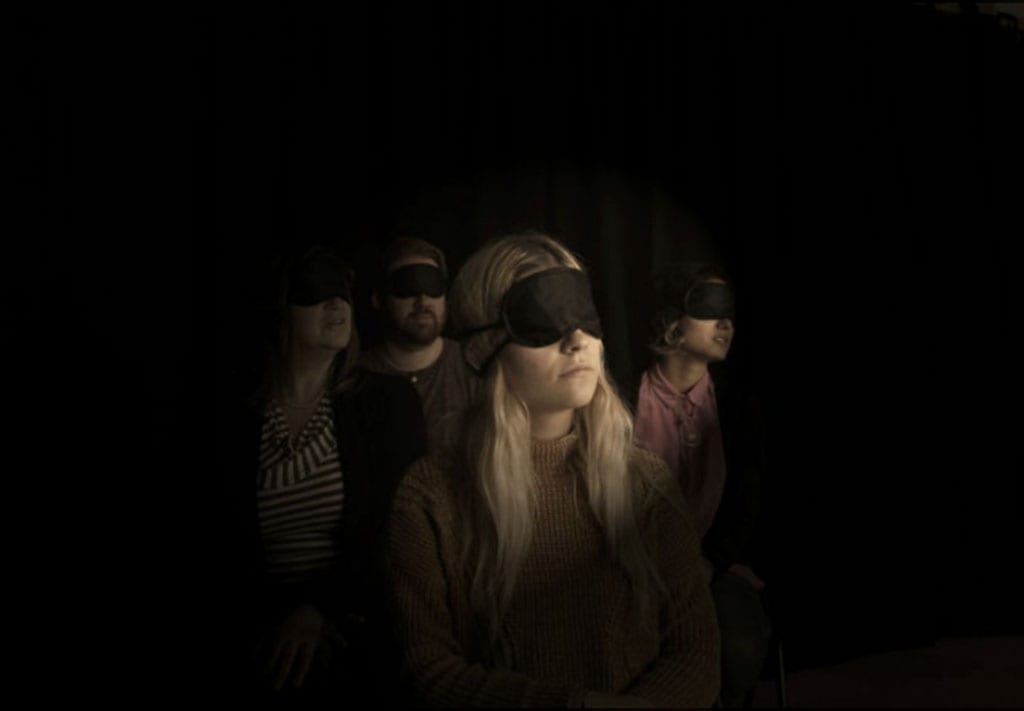We all know and love Samuel Beckett for Waiting for Godot, his internationally famous play first performed in Paris in 1953, which chronicles the bleak existence of Vladimir and Estragon, waiting for a man who never arrives. All That Fall, written three years after this absurdist colossus, is certainly one of Beckett’s lesser known works, but by no means a lesser accomplishment.
Beckett began writing All That Fall at the invitation of the BBC. From his correspondence it is evident that writing for radio, which he had never done previously, was firmly taking root in his mind. He wrote to Nancy Cunard in July about this new and exciting enterprise: “Never thought about radio play technique but in the dead of t’other night got a nice gruesome idea full of cartwheels and dragging of feet and puffing and panting which may or may not lead to something.” This “nice gruesome idea” developed into a deeply autobiographical piece, shaped by childhood memories and by the recent death of his brother. This play is a curious gem, made unique by its level of realism since Beckett intentionally pushes unfamiliarity in many of his other works.
The director of this production, Max Stafford-Clark, has really done this play justice. When asked what his vision for the play was Stafford-Clark knew the right answer was “no vision”. Beckett was adamant that the play was not to be performed, since the lack of the visual dimension is key; he wanted the voices to come “as from the void”. With this in mind Stafford-Clark has come up with an ingenious way around the problem of staging: using blindfolds. The venue for this production, Wilton’s Music Hall, is a wonderful Victorian relic, appropriate given the influence of the music hall on Beckett’s writing. In the hall itself, which is a spectacular room, the seats are arranged so that the actors can walk amongst the audience, mimicking the movements in the play, and for convincing bruitage speakers are strategically dotted around the place. Everything is geared towards creating an immersive acoustic atmosphere to compensate for the loss of sight.
The play is an incisive metaphor for the agony of old age: the narrative follows the dismal odyssey of Mrs Rooney, a fat sluggish woman, prone to moments of hysterical despair and self-loathing, who tramps towards the train station to collect her blind husband. She interacts with various acquaintances that she meets on her journey, often ending up more miserable than before. These people endeavour to aid Mrs Rooney, but in this play Christian deeds are more like obligations, which find no pleasant reward in her incessant whinging. They arrive in a parade of shoddy vehicles, anticipating the final tragedy: Christy’s flatulent hinny, Tyler’s punctured bicycle and Mr Slocum’s defective limousine, which squashes an unfortunate hen. All leads towards the arrival of the train and the awful revelation that a girl has died, crushed under the wheels in suspicious proximity to Mr Rooney.
Bríd Brennan who plays Mrs Rooney is brilliantly funny: her clomping heels are accompanied by liberal amounts of huffing and puffing; there is just about every intimation of complacency and exhaustion in her portrayal. Tara Flynn is excellent as Miss Fitt (a deliberately suggestive name) who is an irksome ostentatious church-goer; she showcases her versatility by also playing the pre-pubescent boy Jerry, which requires a completely different voice. The ability of the entire cast is what brings this play to life, all their voices are rich and dynamic, making the whole thing is both intensely funny and sad, just as it should be; it is a truly masterful performance.

